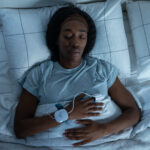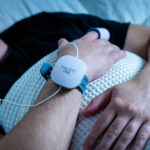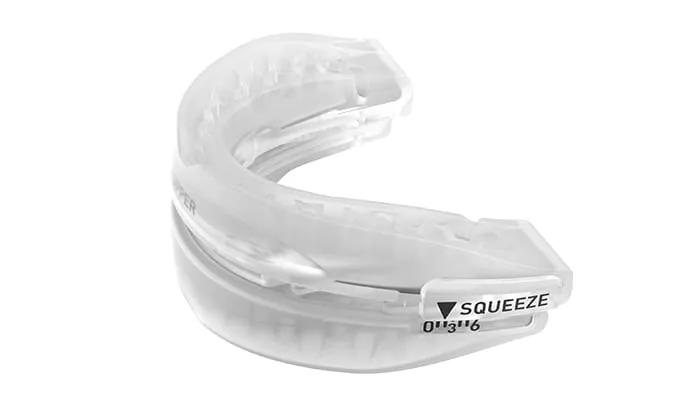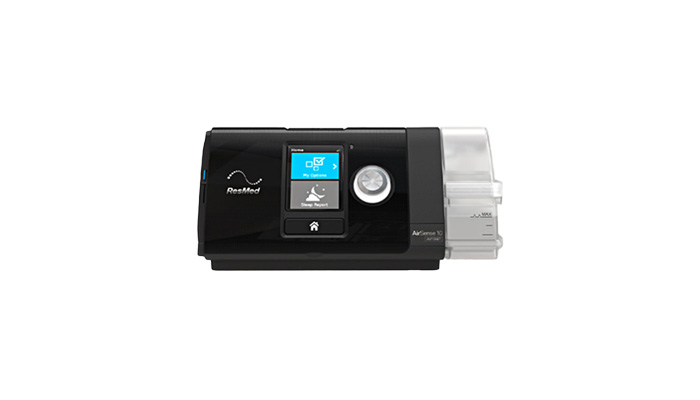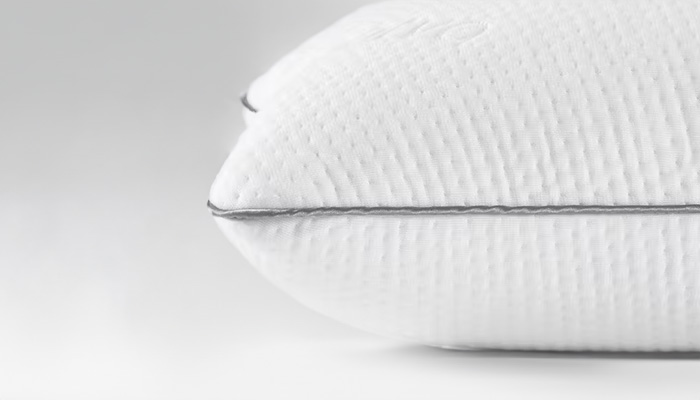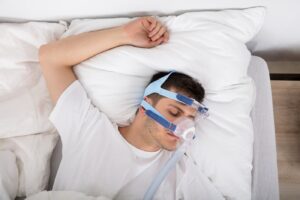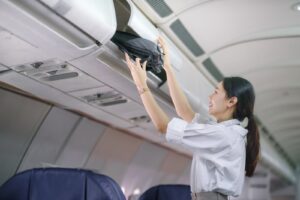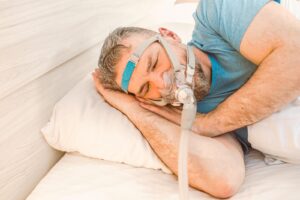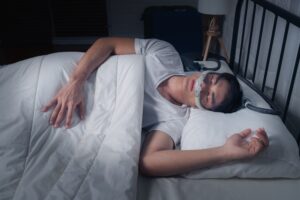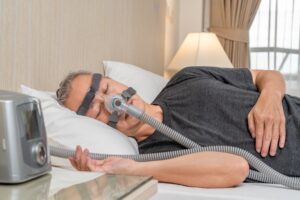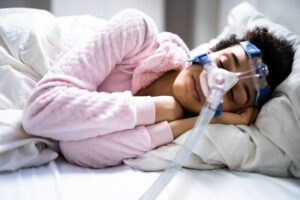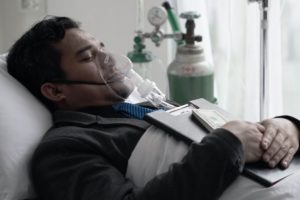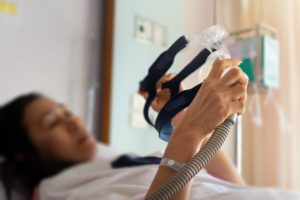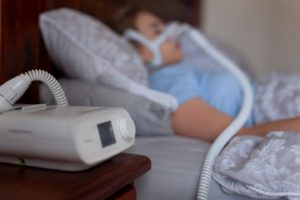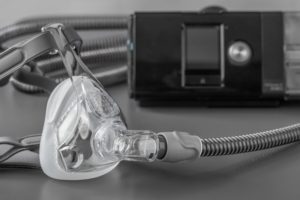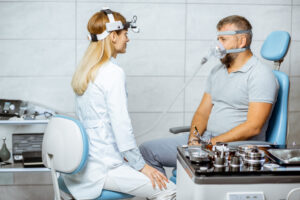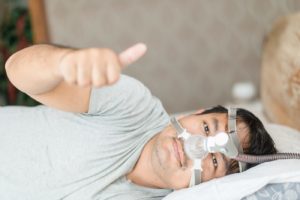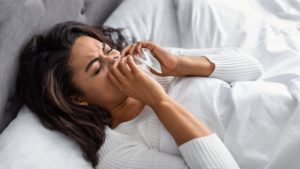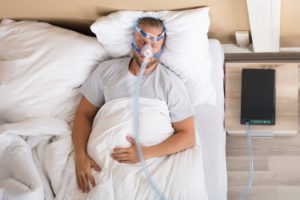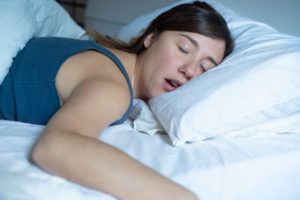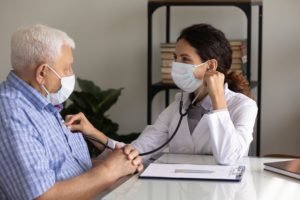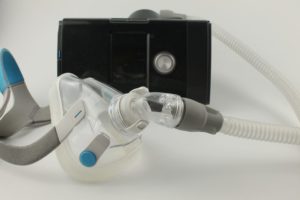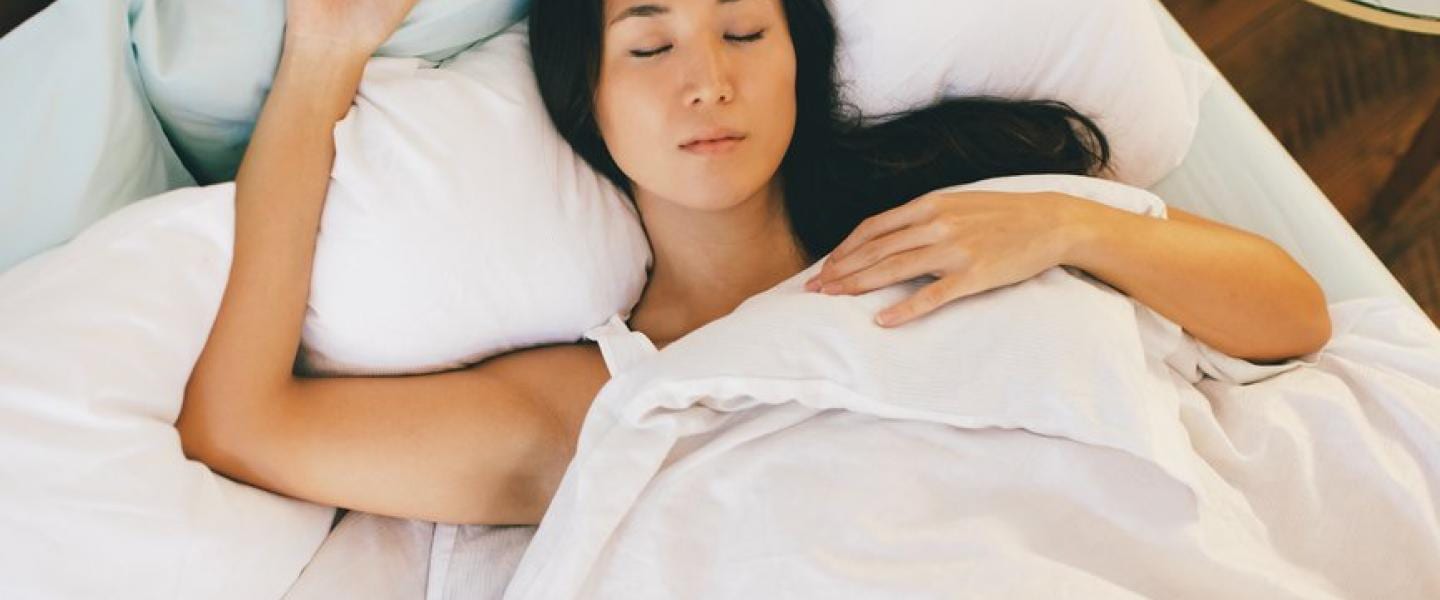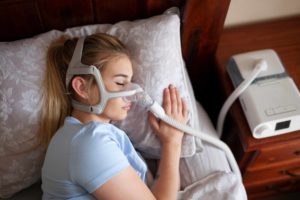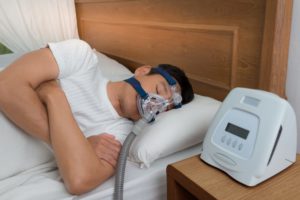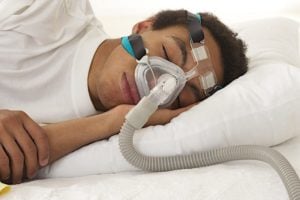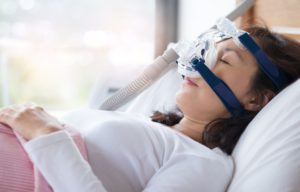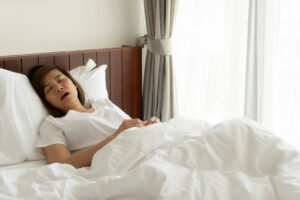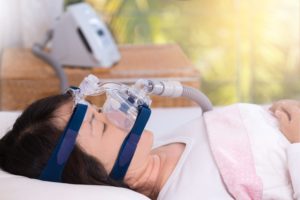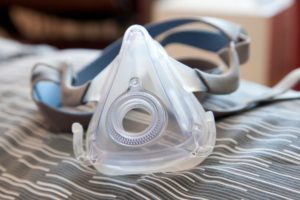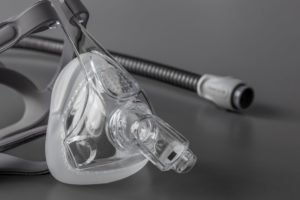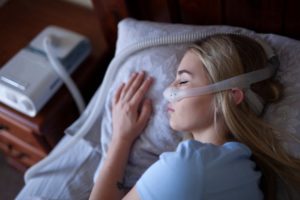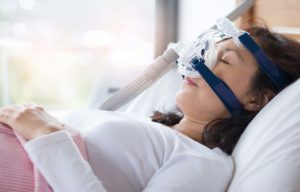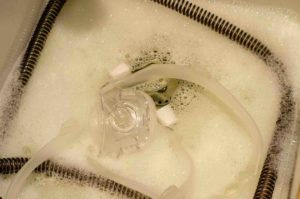When you buy through our links, we may earn a commission. Products or services may be offered by an affiliated entity. Learn more.
How Much Do CPAP Machines Cost?
If you have been diagnosed with sleep apnea, you might need to purchase a CPAP machine. Sleep apnea is a sleep-related breathing disorder. People with sleep apnea have trouble breathing throughout the night, but may not realize they have the disorder until they undergo a sleep study.
Although there are a few treatment options for sleep apnea, CPAP therapy is the most common treatment prescribed. CPAP stands for continuous positive airway pressure. A CPAP machine sits next to the sleeper’s bed. The machine pumps air through a tube into a mask that covers the sleeper’s nose, or nose and mouth. This air keeps the sleeper’s airway from becoming obstructed during sleep.
A few different types of CPAP machines and accessories are available. The cost of a CPAP machine can vary depending on its features and accessories.
Suspect You May Have Sleep Apnea?
Answer three questions to understand if you should be concerned.
Understanding the Cost of CPAP Machines
A CPAP machine’s cost can range anywhere from $500 to $1,000 or more, with prices generally rising for CPAP machines with more advanced features. Bilevel positive airway pressure (BiPAP) machines are more complex and tend to cost more as a result. Most BiPAP machines cost $1,700 to $3,000, but some can run significantly higher. These prices do not include the cost of accessories.
Your CPAP machine cost will also vary based on whether or not you have insurance, and if you do, what type of coverage you have. Some medical insurance policies cover the majority of the machine’s cost, while others cover only a fraction.
| Machine Type | Cost Range |
|---|---|
| CPAP (Continuous Positive Airway Pressure) | $500 to $1,000 |
| BiPAP (Bilevel Positive Airway Pressure) | $1,700 to $3,000 |
| APAP (Auto-Adjusting Positive Airway Pressure) | $600 to $1,600 |
The cost of CPAP machines can vary depending on the machine’s features. Certain features, such as humidifiers, are considered standard . A heated humidifier can reduce dryness and increase comfort, so the sleeper is less likely to have a dry mouth or sore throat after using the CPAP machine.
Auto-adjusting positive airway pressure (APAP) machines, sometimes called auto-CPAP machines, tend to cost more than standard CPAP machines. These machines often look similar to standard CPAP machines, but they are more technologically advanced. APAP machines automatically adjust the amount of pressure based on the sleeper’s breathing patterns. If breathing slows or stops, the pressure of an APAP machine will increase accordingly. Bilevel positive airway pressure (BiPAP) machines provide two different air pressures: one for the sleeper’s inhale and one for the sleeper’s exhale.
Not Sure if You Have Sleep Apnea? Try an At-Home Test
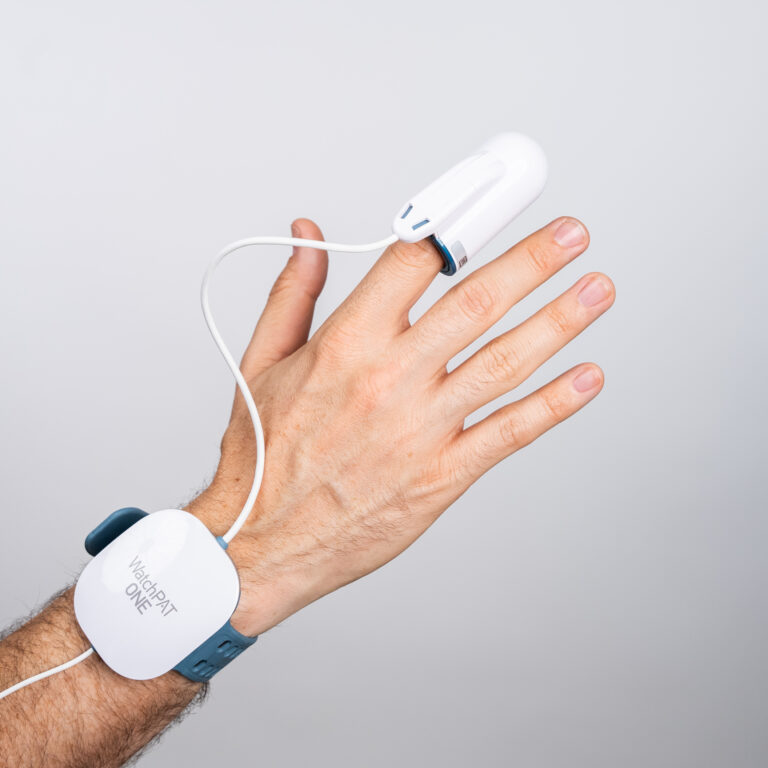
our partner at sleepdoctor.com
Save 54% on your Sleep Test Today
Shop Now“Truly grateful for this home sleep test. Fair pricing and improved my sleep!”
Dawn G. – Verified Tester
CPAP Masks and Accessories
All CPAP machines require accessories. Most retailers sell CPAP machines and accessories separately. Some retailers offer CPAP machine sets or bundles that come with both the base CPAP unit and the required accessories.
Many CPAP machines have a built-in heated humidifier, while some machines require the humidifier to be purchased separately as an attachment. CPAP machines generally come with their own power supply unit, which plugs into standard outlets.
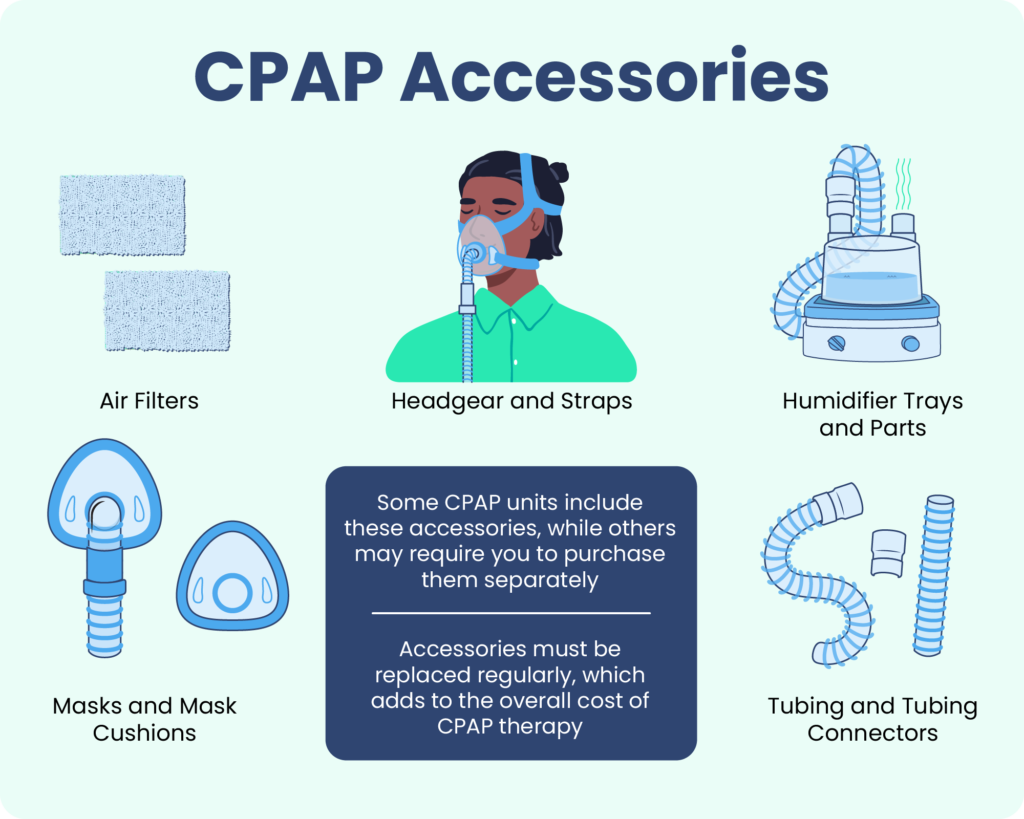
Sleepers can expect to need several accessories for their CPAP machine, which must be replaced on a regular basis . This can add to the overall cost of CPAP therapy.
- Air filters: CPAP air filters typically cost $5 or less per filter, depending on the type of machine. Air filters should be replaced monthly.
- Humidifier: Humidifiers may cost between $20 and $50, depending on the brand. The humidifier water chamber should be replaced every six months or if there are signs of wear and tear.
- Tubing: Standard tubing may range from $5 to $35, and heated options are more expensive ranging from $30 to $75. Tubing should be replaced every three months.
- Headgear and masks: Headgear and masks generally cost between $50 and $200 depending on the design. These components should be replaced every six months, or as they begin to show wear and tear.
- Mask cushions: Smaller pieces that need replacing more often, such as mask cushions, range from $20 to $60. Mask cushions should be replaced monthly.
Insurance providers may cover the total or partial cost of CPAP accessories, so people who are prescribed CPAP therapy should check the details of their policy before purchasing accessories.
Recommended Products for CPAP Therapy
From Our Partners at SleepDoctor.com
CPAP Machines and Health Insurance
Health insurance companies often cover the cost of CPAP machines and accessories. You can see our recommended suppliers that take insurance for CPAP here. Sleepers who need a CPAP machine should check with their insurance company for details before paying out of pocket.
CPAP machines are generally considered “durable medical equipment” by health insurance companies. The deductibles and copays for durable medical equipment tend to differ from those associated with doctor’s visits and procedures.
A health insurance company usually only covers a CPAP machine if they know it is medically necessary. To prove medical necessity, the patient must usually undergo a sleep study, and their medical provider must confirm to the insurance company that the results of the sleep study suggest the sleeper would benefit from using a CPAP machine.
Some insurance companies require sleepers to technically rent their CPAP machine for a certain amount of time, such as a year. The sleeper must pay a monthly copay for that time period. Once it ends, they will own the CPAP machine outright.

Still have questions? Ask our community!
Join our Sleep Care Community — a trusted hub of product specialists, sleep health professionals, and people just like you. Whether you’re searching for the perfect mattress or need expert sleep advice, we’ve got you covered. Get personalized guidance from the experts who know sleep best.
References
3 Sources
-
Patil, S. P., Ayappa, I. A., Caples, S. M., Kimoff, R. J., Patel, S. R., & Harrod, C. G. (2019). Treatment of adult obstructive sleep apnea with positive airway pressure: An American Academy of Sleep Medicine systematic review, meta-analysis, and GRADE assessment. Journal of Clinical Sleep Medicine, 15(2), 301–334.
https://pubmed.ncbi.nlm.nih.gov/30736888/ -
A.D.A.M. Medical Encyclopedia. (2022, January 1). Positive airway pressure treatment. MedlinePlus., Retrieved February 3, 2023, from
https://medlineplus.gov/ency/article/001916.htm -
Office of Inspector General. (2013, June). Replacement schedules for Medicare continuous positive airway pressure supplies. Department of Health and Human Services., Retrieved February 3, 2023, from
https://oig.hhs.gov/oei/reports/oei-07-12-00250.pdf


